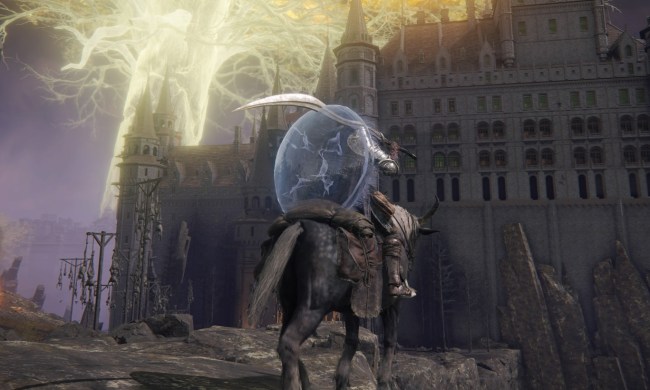Talk to anyone about The Legend of Zelda: Breath of the Wild and the topic of weapon degradation is sure to come up. Any weapon Link picks up in the game will break after a number of uses, forcing players to constantly switch their tools up. The controversial feature has been a point of contention since the game launched in 2017, acting as a single blemish on an otherwise beloved game.
I’ve always been neutral on the topic, but after playing Elden Ring, I’ve come to appreciate the clumsy intentions behind the system. Weapons don’t break in Elden Ring (I would have filed a class-action lawsuit if they did), but switching up gear is still crucial. Anyone who simply sticks to their starting weapon is going to find the adventure much harder than it needs to be.
Trust me, I should know. After being too stubborn to change my trusty lance initially, I finally understood why Breath of the Wild was so eager to take my toys away.
Comfort lance
When you choose a character class in Elden Ring, you’re given a default starting loadout. As a Prophet, mine included a lance and a finger seal for spellcasting. As I gained my sea legs during the game’s opening hours, my playing style was built around that midrange combat style. I learned how much space I needed to keep between myself and enemies, putting me in a comfortable headspace for an otherwise uncomfortable game.
Not long into the game, I discovered my first smithing stones. These precious items are used to upgrade weapons, and they can be a little tricky to find at first. Naturally, I used some to level up my lance quickly. Doing so immediately compounded my fear of parting with my sharp companion. Was I really going to drop a weapon I felt I had a good grasp on after spending valuable resources on it? Not to mention that any new weapon I found was weaker than it, since I had already buffed my lance’s stats enough at that point.

As a result, I spent a good two-thirds of Elden Ring using my starting weapon set, leveling it all the way up to +14. It wasn’t until I hit a particularly tricky encounter that I decided to try something new. I switched to a special sword I had salvaged from a cave and pumped a few levels into it for curiosity’s sake.
That weapon completely changed the way I played the rest of the game. It was a faster weapon that allowed me to play more aggressively. It also featured a special attack that would let me whirlwind slash an enemy and bounce off it a few feet away. I had seen the light and felt like a fool for hanging onto my lance for so long.
This can be a common sensation for open-world players, especially in games with heavy RPG mechanics. It can be hard to let go of a weapon when you feel like you’ve already invested so much time into it. Comfort feels preferable to starting fresh. That’s not the game’s fault, but it’s a weird human behavior developers have to think about.
Breaking steel
That’s exactly what Breath of the Wild was trying to solve with its controversial weapon system. That game is entirely built around experimentation. It wants players to constantly try new things in its sandbox world. Nintendo forces players to do so by breaking their weapons after a number of uses. That way, they constantly need to be equipping whatever they have on hand and seeing how they fare with it.
That system has low lows, but high rewards too. You’d never know that you could freeze an enemy with an ice rod and blow them off a cliff if you just stuck to one powerful weapon. The game is full of delightful interactions like that, and Nintendo actively wants you to see as many as you can.

Naturally, it wasn’t an elegant solution. Players largely hated the system and hope it doesn’t reappear in the game’s upcoming sequel. Still, the design philosophy behind it is a sound one that makes sense in the context of a true sandbox game. If Breath of the Wild 2 gives me the Master Sword from minute one, I know I wouldn’t equip anything else.
I truly don’t wish Elden Ring had adopted a similar system. Frankly, it would only have added frustration to an already challenging experience. But I wish I had understood earlier on that there was a real benefit to switching gear up. Chalk that up to my own inexperience with FromSoftware games or personal neuroses (it’s the latter, I know).
Consider this a PSA for everyone embarking on their journey: Don’t get attached to your starting gear. Elden Ring may not be cruel enough to break your weapons, but they’re not meant to last. When you grab a new sword off of a magma dragon’s belly, get to swinging.
Elden Ring is available now on PC, PS4, PS5, Xbox One, and Xbox Series X/S.



